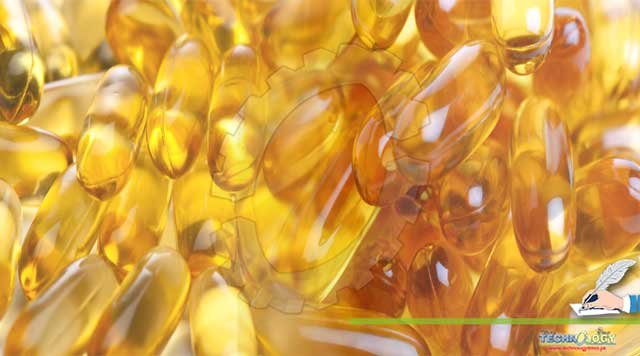Vitamin E is an antioxidant protecting our body’s cells, tissues and organs from substances called free radicals by slowing down the process of cell damage.

These are electrons broken off from atoms. Various health concerns develop because of free radicals, such as premature ageing and cancer. Our bodies require vitamin E for a wide range of reasons; some of them involve its ability to strengthen our immune system against different viruses and bacteria by promoting the formation of red blood cells. Also, it puts vitamin K to use, widens the blood vessels and prevents clotting. If you think you need more expert advice, you can always talk to a healthcare expert at emeds Pharmacy.
The antioxidant further enhances the interaction between our cells, aiding them in carrying out important functions properly.
We can find many food items with vitamin E dissolved as fats in them. These include cereals, eggs, vegetables, vegetable oils, meat and fruits. Moreover, it is available as supplements to ingest and as oil to apply directly onto the skin. Besides the direct application, skincare brands incorporate it into their creams, lotions and gels with other ingredients to increase its benefits tenfold.
Following are some of the health benefits associated with vitamin E:
Menstruation
Menstrual cramps are annoying, and we know they don’t just go away with little trouble. However, medical professionals suggest taking vitamin E for 2 days before the bleeding starts and for 3 days after. It seems to reduce pain and minimise blood loss. For added benefits, consume it with fish oil to experience further pain relief. If taken orally, it may also reduce depression, anxiety and cravings associated with PMS (premenstrual syndrome).
Skin and nails
Skin is probably one of the most researched topics in relation to vitamin E and results in various skin products loaded with the antioxidant. Whether it’s scarring, wound healing, moisturisation or protection from sunburns, you got yourself an all-in-one ingredient. Research suggests that it may also reduce eczema and the itchy, flaky, dry skin related to it.
When discussed concerning scaring, while a few pieces of research suggest that it prevents scarring, they do tie its moisturising properties reducing scars through fighting dry skin.
Various other benefits associate themselves with vitamin E. While researches show that vitamin E protects from sunburn, it does not work in place of a sunblock.
Eye disorders
Cataracts are a common eye disorder causing significant vision loss in older people. It occurs because of the accumulation of proteins damaged by free radicals. Various observational studies revealed a potential link between vitamin E and how it fights the risk of cataract formation. A study found that lens clarity was higher in subjects consuming vitamin E supplements and those with higher blood levels of the vitamin. In another study, long-term use of vitamin E was linked with the slower development of age-related lens opacification.
Mental function
Multiple studies investigate the relationship of vitamin E supplements that might help older adults maintain mental alertness and activity and slow the declining cognitive function and Alzheimer’s disease. Consuming vitamin E supplements does not seem to prevent Alzheimer disease; however, in people who are already suffering from Alzheimer disease, taking vitamin E in combination with some anti-Alzheimer medicines might help slow the decline of memory loss. It also helps delay the onset of dependence which can cause the need for caregiver’s intervention in people with mild-to-moderate Alzheimer disease.
Immunity
Researches have helped prove that vitamin E stimulates the body’s defences, enhances humoral and cellular immune responses. It profoundly affects infectious diseases where immune white blood cells are involved; however, it is a little less effective in red blood cell-related immune defences. Vitamin E also enhanced the immunity to viral diseases in the elderly, where high numbers of plasma vitamin E levels matched with a reduced number of infections for a couple of years.
Liver disease
Studies conducted on the relationship between vitamin E and its effects on the liver showed that vitamin E might ease nonalcoholic fatty liver disease symptoms. However, some evidence proves that taking oral vitamin E for this purpose for two years saw a link to insulin resistance.
Food Sources
It’s pretty easy to get the daily dose of your vitamin E requirements if you do not wish to opt for supplements or topical use. Following are the food items high in vitamin E:
- Nuts: almonds, peanuts, and hazelnuts/filberts
- Green leafy vegetables: spinach and broccoli
- Seeds: sunflower seeds
- Vegetable oils: extracted from wheat, sunflower, safflower, corn, and soybean
- Fortified breakfast cereals, margarine, fruit juices and spreads.
Fortified means that foods contain infused vitamins. You will find the rest of the relevant information on the food packaging. Moreover, products derived from these foods, such as margarine, are also rich in vitamin E.
Side Effects
While the antioxidant is a natural ingredient, excessive use can cause a few undesirable side effects. Some people are sensitive to vitamin E supplements, which can cause stomach cramps, weakness, diarrhoea, rashes, nausea, tiredness, headaches, and other problems. Eating vitamin E in foods is not particularly risky or harmful. However, a high dose of vitamin E supplements might increase the risk of bleeding in the brain, leading to a brain haemorrhage.
High levels of vitamin E can also increase the risk for congenital disabilities in newborns. But the claim needs more research.
As a fat-soluble, vitamin E sits in the body, and excess does not wash out through the urinary tract, as happens with water-soluble vitamins. This means that vitamin E can pile up to toxic levels over time and a possibility to overdose on this vitamin is not out of the equation.
Too much supplemental vitamin E can cause many other symptoms, including fatigue, blurred vision, etc. The vitamin is also a mild blood thinner and dilates the blood vessels, so doctors discourage high doses before surgery.